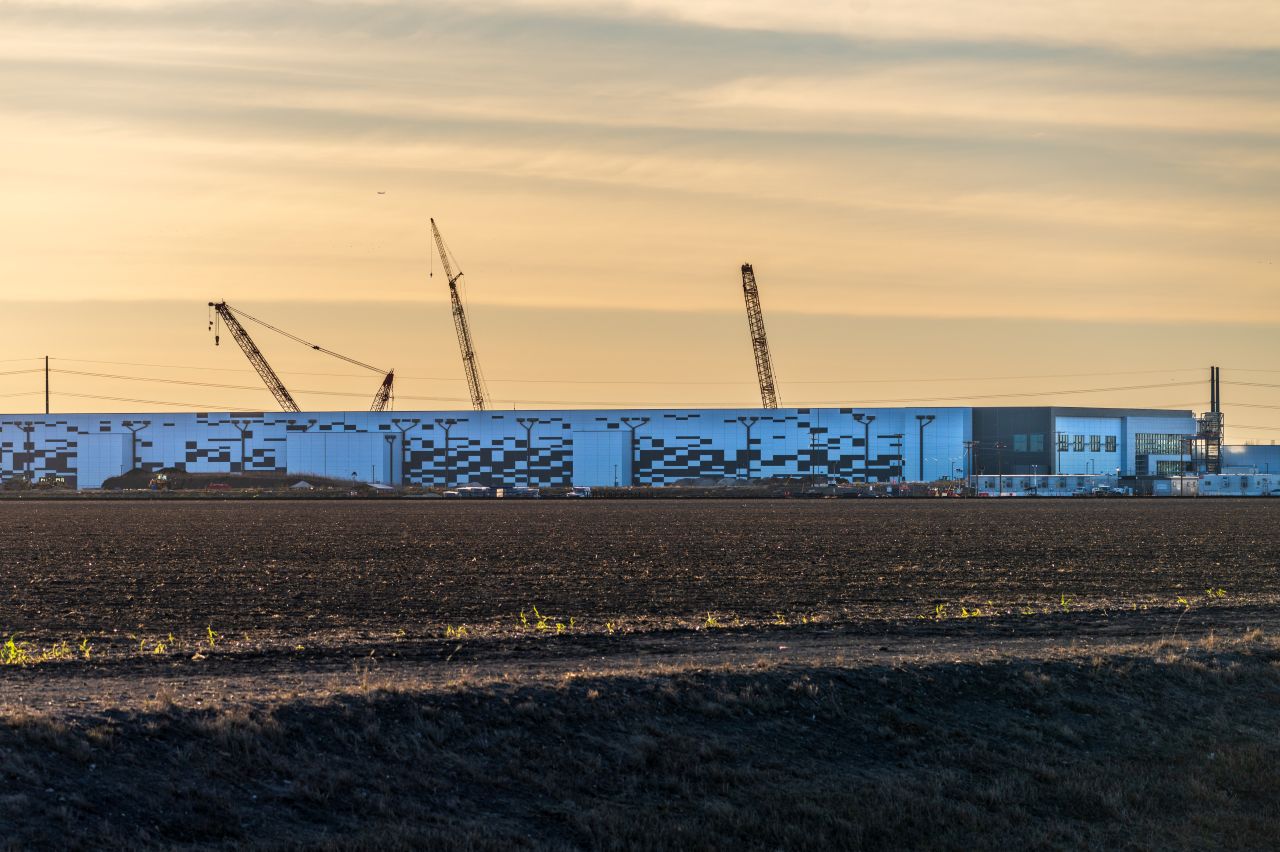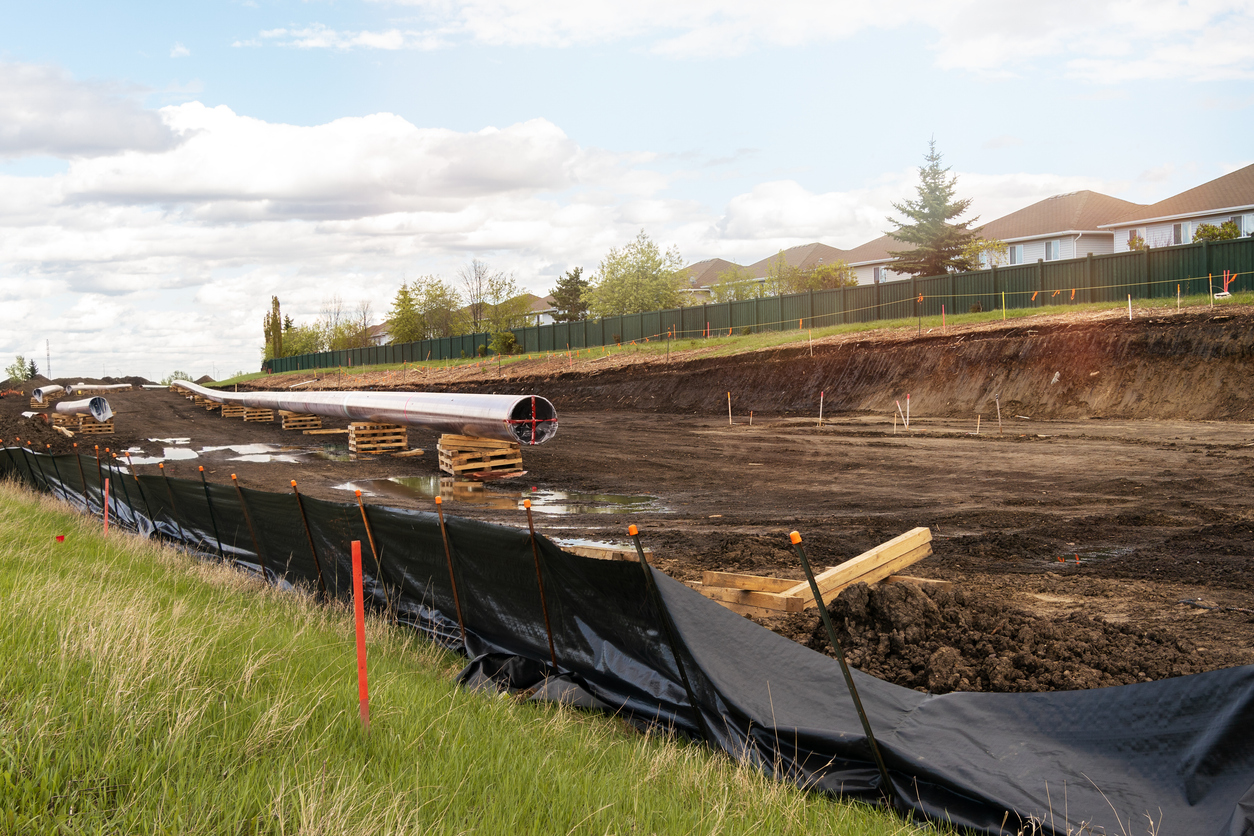Biologist encounters oil-spewing pipe while researching biodiversity in the Gulf of Mexico. It’s not an isolated incident.

Doctoral student Jill Tupitza was on a boat returning from a biodiversity monitoring outing in the Mississippi Delta’s Barataria Bay just south of New Orleans on Saturday, Oct. 21, when she and her colleagues noticed something weird.
“We were wrapping up for the day, going back to harbor, when we saw something hazy in the distance,” said Tupitza, a doctoral candidate in the oceanography and coastal sciences department at Louisiana State University. “I thought it was maybe a dredge site, but there was an overwhelming petrochemical smell making a few of us nauseous.”
Tupitza and her fellow researchers soon realized a pipe atop a small platform was spewing oil into open water. They immediately called the coast guard and shortly thereafter reported it to the Louisiana Department of Natural Resources.
Tupitza said she’d never seen an active oil spill before and didn’t realize how much it would disturb her. “We were so upset,” she said. “How dare they. Unbelievable.”

The wellhead was capped by the following Monday, having released what the company estimated was 15 barrels of crude oil into the surrounding waters.
Extex Production Offshore, the Houston-based owners of the platform, did not respond to The New Orlean’s Time’s Picayune’s requests for information about the spill, or five other small oil release incidents reported to the Coast Guard's National Response Center earlier this year. The oil well connected to the pipeline had been out of commission, or “shut in,” for nearly a decade. Before that, the well had been producing low quantities of oil as a “stripper well” since 1979. Because it is subject to harsh weather like hurricanes, as well as corrosion, for safety reasons, the well should have been properly plugged years ago.
Unfortunately, unplugged or abandoned wells like this are common in the Gulf.

A May 2023 study in the journal Nature Energy identified about 14,000 unplugged, non-producing wells in U.S. Gulf of Mexico offshore waters, inland waters, and wetlands. About 90 percent of these are wells in shallower waters closer to shore, like the one Tupitza encountered.
Oil and gas companies are required by law to decommission offshore equipment by permanently plugging wells and removing or securing associated infrastructure such as platforms and pipelines. Companies frequently fail to meet these obligations, and the two agencies responsible for managing offshore oil and gas in federal waters—the Bureau of Ocean Energy Management (BOEM) and the Bureau of Safety and Environmental Enforcement (BSEE)—have often failed to hold companies accountable. The Nature Energy study determined that there are more unplugged and non-producing oil and gas wells than currently active wells in the Gulf of Mexico.
Scott Eustis, community science director with Healthy Gulf, said that while the Louisiana Department of Natural Resources is moving towards requiring inactive wells like the one Tupitza encountered to be plugged, it’s a long way away from hiring the workforce needed to care for these wells.
According to Healthy Gulf, Louisiana has over 21,000 closed off (“shut-in”) wells on top of the official orphan well list (wells with no known operator) of 4,500-plus. On top of these are 2,591 lost wells that cannot be located by the Louisiana Department of Natural Resources, for a grand total of over 28,000 wells. Many of these abandoned and orphaned wells are in tribal areas, such as the waters of United Houma Nation.

“Louisiana has an issue of abandoned or broken wells, and these wells not only can spill oil, but also regularly leak methane,” Eustis said. “Oil companies frequently lay off their employees or close up shop before they properly address these abandoned or decaying wells, and when there is no one caring for these wells, they are more likely to break and leak.”
Eustis said oil companies like Extex Operating Co. are notorious for not using or caring for their large population of inactive wells on the coast.
“These shut-in wells are not on the official ‘orphan’ list, but are effectively orphaned, since the oil company does not hire oil workers to care for the well,” he said. “We will always need oil workers to care for these wells, but instead, what we have is deadbeat oil companies that have stopped hiring, and climate and oil pollution is the result.”
Tupitza and her colleagues at the LSU Glaspie Marine Community Ecology Lab are monitoring organisms that live on the surface sediment under the water to use as environmental indicators of how healthy the overall ecosystem is. The broader goal of the research is to understand how sea level rise along the Louisiana coastline, which is happening as much as 10 times faster than the global average, is affecting biodiversity and ecosystem health.
She said the oil-spewing platform was located very close to some of their biodiversity monitoring sites, and that the oil could disrupt their sampling and skew the results of their analysis. She also said her team encountered numerous dolphins while on the water that day.
Tupitza believes that Louisiana’s investment in carbon capture and storage (or CCS) projects, which “helps prop-up oil companies” by providing them with billions in federal subsidies, is only going to make things worse for her research and the ecosystem she’s studying.
“This is not a one-off tragic accident,” she said. “We are voting and enabling it to occur. All the CCS money is going to oil companies that time and again have pushed against the transition to renewable energy and latched onto harmful technologies that are being deployed here as a testing ground.”
Eustis echoed Tupitza’s sentiments about carbon sequestration, saying carbon waste injection in Louisiana is risky and a false solution to climate change.
“Given the sheer number of wells currently leaking methane, it would be more efficient and effective to cap these wells and stop their leaking rather than invest in a technology that is proven to not work as promised,” he said. “Getting oil workers jobs capping wells will have a greater, faster effect on slowing climate change.”
Megan Milliken Biven, a Louisiana native who founded True Transition, an organization committed to making sure oil and gas workers have a seat at the table during the energy transition, testified in a House Subcommittee on Energy and Mineral Resources oversight hearing on October 18 on the subject of abandoned and orphan oil wells.
“The journey of an oil or gas well from generating profit for a private company to plaguing American communities is not one of happenstance,” she said. “It’s an intentional business practice. The problem is that oil and gas regulation happens at a local level where permissive state regulators have weak rules which have allowed these unplugged well inventories to balloon into a full blown public crisis.”
Milliken Biven proposed the creation of a national Abandoned Well Administration to address issues such as the need for stronger state regulations and forcing industry to pay for clean-up.
“Why is the American public paying to clean up this mess, when the industry is in literal profit bonanza mode right now?” she said. “We propose a national tax on production to push the cost back on the industry.”
Lead photo: A flyover image of a piepline leak in the Gulf of Mexico off the Louisiana coast in 2016. Photo by Healthy Gulf.















